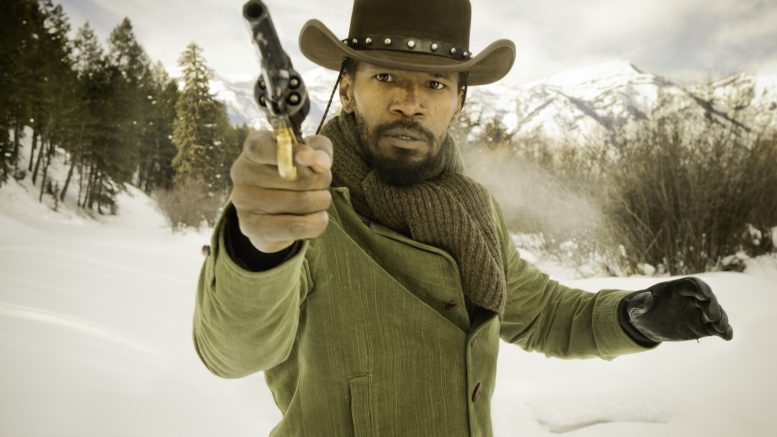“Django Unchained,” Quentin Tarantino’s 2012 cinematic triumph, let us look into the harrowing era of pre-Civil War slavery. Amidst its cinematic brilliance lies lesser-known intricacies that amplify its narrative impact.
One often-overlooked gem is the film’s meticulously curated soundtrack. Tarantino, renowned for his eclectic musical choices, expertly blends Ennio Morricone’s classic Western tunes with contemporary hip-hop, adding a unique sonic layer to the film.
Historical themes with modern sounds
The haunting ballad “Freedom” by Anthony Hamilton and Elayna Boynton acts as a poignant undercurrent, resonating with the film’s emotional depth. Tarantino’s deliberate fusion of historical themes with modern sounds heightens the viewer’s immersive experience.
Foxx’s Django: A Multifaceted Exploration of Emancipation
Jamie Foxx’s portrayal of Django, a liberated slave turned bounty hunter, adds nuanced layers to the storyline. Foxx not only embodies the character but also provides a fresh perspective on the complexities of emancipation.
Beyond the on-screen brilliance, the film’s off-screen dynamics contribute to its richness. Christoph Waltz’s exceptional portrayal of Dr. King Schultz earned him an Academy Award, showcasing Tarantino’s knack for extracting stellar performances.
Leonardo DiCaprio, known for his nuanced roles, took on the antagonist Calvin Candie. DiCaprio’s deep dive into the character added chilling authenticity to the film. However, it’s worth noting that DiCaprio cut his hand during a scene, yet continued the take, showcasing his commitment.
The film’s title pays homage to Sergio Corbucci’s 1966 spaghetti western, “Django.” Tarantino’s reinterpretation breathes new life into the character, blending homage with innovation.
While “Django Unchained” received acclaim for its bold storytelling, its impact on societal discourse is equally profound. Tarantino fearlessly tackles the sensitive subject of slavery, prompting vital conversations about historical injustice.
DiCaprio’s Dedication and Tarantino’s Uncredited Edit
In the realm of lesser-known facts, the film’s uncredited co-editor is none other than Tarantino himself. His hands-on approach to post-production reflects his dedication to realizing his vision.
“Django Unchained” also features an impressive ensemble cast, with notable cameos from Franco Nero, the original Django, and Don Johnson. These subtle nods add layers of homage and intertextuality.
The film’s humor, often dark and satirical, serves as a narrative device to address sensitive issues. Tarantino masterfully uses wit to dissect the gravitas of slavery, making the film both thought-provoking and entertaining.
In conclusion, “Django Unchained” is more than a cinematic spectacle; it’s a profound exploration of history, identity, and societal reflection. Tarantino’s meticulous attention to detail, lesser-known anecdotes, and the fusion of historical and modern elements create a cinematic tapestry that transcends genres. As the film continues to captivate audiences, its nuanced layers and socio-cultural impact solidify its place in cinematic history.


Be the first to comment on "Django Unchained: Masterful Music, and Cinematic Brilliance"